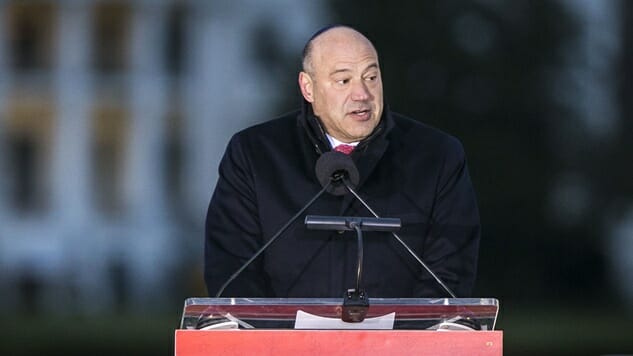Introducing Endless Mode: A New Games & Anime Site from Paste
When news of now-president Trump’s now-former top economic advisor Gary Cohn’s resignation broke, no one was surprised. His exit had been rumored for some time. He threatened to leave last summer after the president took two days to condemn those who took part in a white supremacist rally in Charlottesville, Va., that left one woman dead. Cohn ultimately stayed in the White House’s employ, but his desire to remain in his position was questioned again after Trump’s decision to impose tariffs on foreign steel and aluminum. Now, as he becomes another in a long line of Trump flunkies to jump ship, he takes with him a key voice of opposition to the president’s trade policies that resulted in a schism between Trump and the conservative establishment.
Congressional Republicans moved quickly to criticize the president’s decision, which was made without internal discussion or support, arguing that it threatened to “undercut” the supposed good that December’s massive tax legislation would bring, severely hampering their ability to use it as a positive campaign platform during the 2018 midterm elections.They aren’t wrong. The blanket tariffs would affect businesses and consumers alike, much like tariffs implemented under previous administrations did, and, more importantly, provide the spark for an international trade war between the U.S. and the rest of the world. The European Union has already threatened retaliatory taxes on American exports, such as oranges, bourbon and Harley-Davidson motorcycles, in remarks that accurately referred to the entire process as “stupid.”
Within the White House, Cohn served as the main voice of opposition to the kind of policies that would cause EU Commission President Jean-Claude Juncker to say “we can also do stupid.” The former Goldman Sachs banker is a strong advocate of free trade, much like the GOP establishment that is publicly and privately criticizing the president, and did what he could to combat the “America First” mantra adopted by the Trump administration. According to Bloomberg, Cohn voiced his displeasure with Trump’s tariffs during an Oval Office meeting mere hours before the announcement of his resignation. When asked by Trump if he would stand behind the proposed tariffs, Cohn didn’t answer.
Cohn’s departure creates a vacuum that could easily be filled by yet another populist voice, which would only strengthen Trump’s ability to appeal to his base. “The average-guy vote Trump seems to aim at and do rather well with seems as happy as a clam with the tariffs,” said Clyde Prestowitz, author of The Betrayal of American Prosperity, to the New York Times.
That outlook on global economics and America’s position within it doesn’t bode well for conservatives attempting to combat the White House’s chaotic nature. The economic division created by Trump’s recent moves is the latest blow in the ideological fight brewing within the GOP, and only threatens to split the party and its base even more ahead of arguably the most important midterm elections in recent history. Multitudes of incumbent Republicans are either retiring or facing emboldened Democratic opponents. If last night’s increase in Democratic voter turnout in last night’s Texas primaries is any indication, a storm is brewing come November, and Republicans can’t help but feel squeezed.
Now that Republicans’ best ally within the White House is gone, they have no power to regulate the president’s ability to impose “stupid” trade policies and they have to appeal to a base that is increasingly forcing party lines towards a dangerously alt-right precipice. The identity crisis might be centered on economics currently, but it won’t end there.
